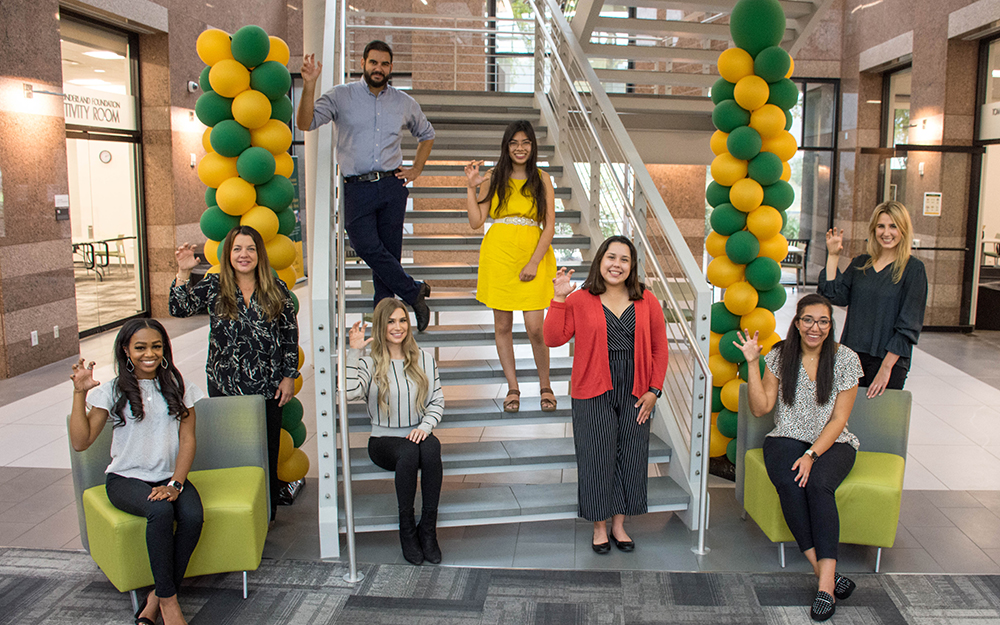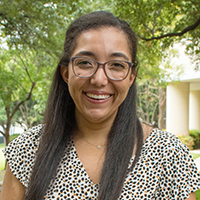School Psychology Degree Offered in Dallas
Alex Jones was a 14-year-old babysitter when she first encountered a child with autism. “I just loved seeing life through his lens,” she said. “I knew then I wanted to work with children with special needs; I just didn’t know in what capacity.”
Jones has found her answer now. A first-year graduate student in School Psychology, Jones and her seven classmates form the first cohort in the School of Education’s new Dallas-based program offering an Educational Specialist degree (EdS). The program leads to licensure as a School Psychologist, known in Texas as a Licensed Specialist in School Psychology (LSSP).
Dr. Julie Ivey, associate professor of Educational Psychology and coordinator of the Dallas program, said the School of Education’s expansion into the Metroplex, which previously had no program, allows Baylor to increase its impact in a field with a significant shortage of professionals and a high need for service. Baylor’s well established Waco EdS program has 100 percent pass rate on national exams and 100 percent job placement rate. Both programs are accredited by the National Association of School Psychologists (NASP).
“School Psychologists apply expertise in mental health, learning, and behavior. They help children and youth succeed academically, socially, behaviorally, and emotionally,” Ivey said. “These needs will only increase because of the pandemic; students may have gaps in learning or social skills, requiring extra support.”
Jones said the ability to impact students, both on individual and systemic levels, made the career appealing. A 2018 health education graduate of Texas A&M, Jones has directed a special-needs program at her Houston church for two years. When a volunteer suggested she look into School Psychology, suddenly it clicked.
Once she met Ivey — virtually — Jones never looked back. “All of the faculty are top notch and so helpful,” she said. “The Baylor faculty have a broad scope of research interests, a depth of knowledge, and a breadth of experience.”
Through the program’s research requirement, Jones will work directly with a faculty member, and she said not every program offers that. Ivey said the research requirement equips graduates to continue growing their expertise as professionals. She noted one Baylor graduate who employed her research skills to develop an expertise in selective mutism and create a program addressing needs in her district.
Dallas EdS students meet on the campus of Baylor’s Louise Herrington School of Nursing and also online, combining with students in Waco, and are taught by faculty from across the program. Each Dallas student has a peer mentor in Waco in the Eds or PhD program.
The three-year EdS degree includes work in schools at each level, and Ivey said Baylor school leaders in the area are eager to host them. The third year is a full-time paid internship, which can be done anywhere in the country.
Students typically come with undergraduate degrees in psychology or education, although no specific degree is required. The first Dallas cohort is a diverse group with varied backgrounds, Ivey said. Three students were Dallas residents, two moved from Houston, two moved from out of state, and one is commuting a couple of hours.
After moving from Houston, Jones is confident in her decision. “I know this is what God has for me, and this is where I’m supposed to be,” she said. “That is really comforting and exciting.”
More information about School Psychology: BAYLOR SCHOOL PSYCHOLOGY
Story by Meg Cullar
Photo by Monica Mullins, Baylor School of Nursing

